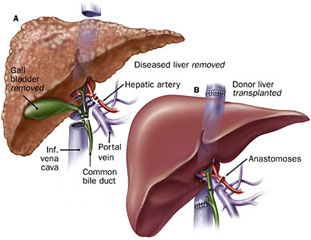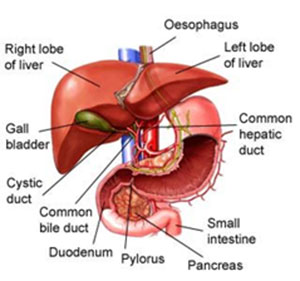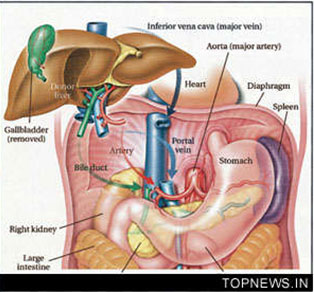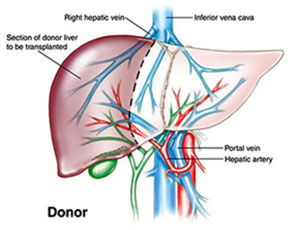Liver Transplant Surgery is a procedure in which a damaged liver is replaced with a healthy liver. Liver is an inseparable organ of human anatomy, without which a person cannot survive. The hepatic artery and the portal vein are the two channels through which blood enters the liver supplying oxygen to the liver and through the hepatic veins the blood leaves the liver entering the heart. Bile is a liquid that dissolves fat and eliminates the waste through the intestine. Thus, if the liver is found deceased in a person then it becomes necessary to go for the liver transplant surgery, allowing the body to function well.


When it becomes difficult to survive with liver disease and the liver is not in a position to function well and expected survival is limited for months and patient’s life style is restricted, liver transplant is indicated. Liver transplant extends survival and improves quality of life style as a result of which person can lead active and productive life.
As with any other surgical procedure, there are certain risks and complications involved in Liver Transplant Surgery. Some of the specific ones are described below:


A person suffering from critical liver disease may experience the following symptoms and is recommended to consult the doctor for medical assistance as early as possible.